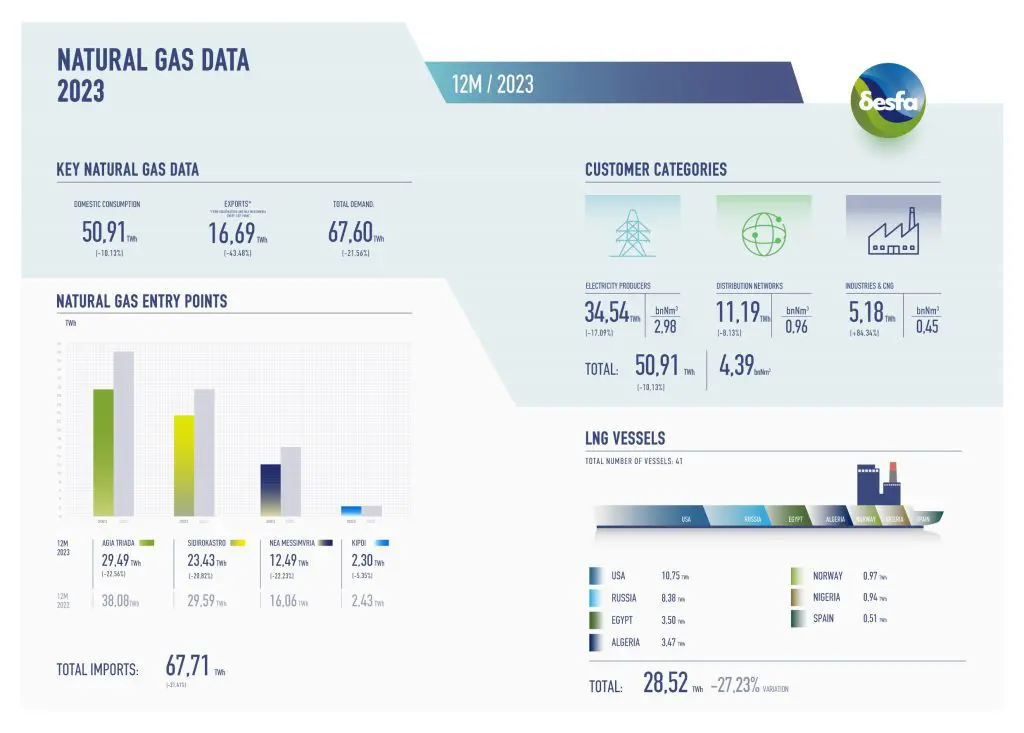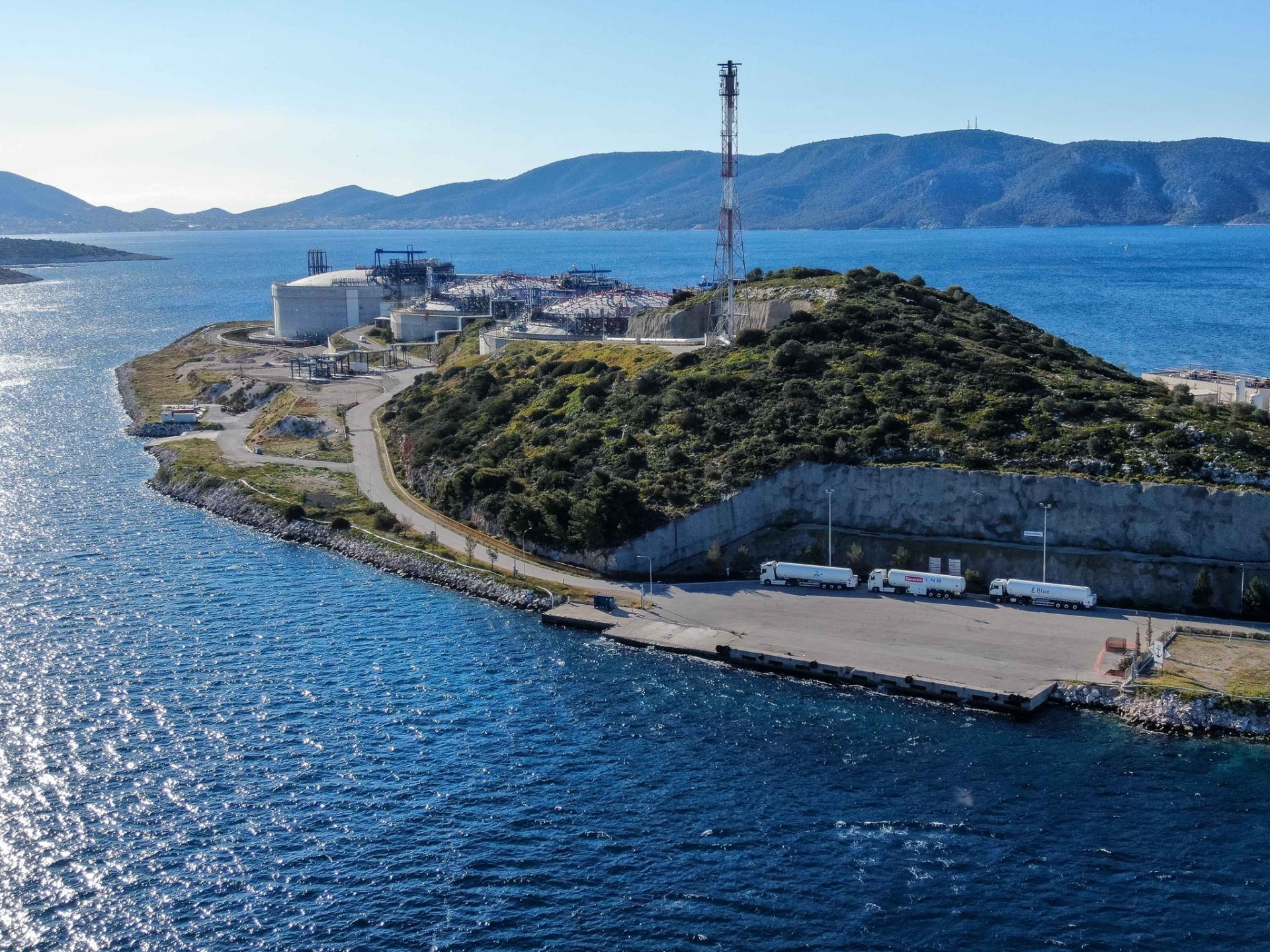Liquefied natural gas (LNG) deliveries to Greece’s Revithoussa terminal decreased 27.2 percent last year, with US and Russia supplying the majority of the volumes, according to DESFA.
The LNG shipments in the January-December period totaled 28.52 terawatt hours, or 41 tankers, the Greek gas grid and LNG terminal operator said.
This compares to record 78 cargoes and 39.19 TWh of LNG in 2022.
In the January-October period last year, the shipments totaled 24.04 TWh, or 34 tankers, meaning that LNG imports in the fourth quarter were at 4.48 TWh, or 7 tankers.

US volumes dip
The US remained the largest LNG supplier to Greece with a 37.69 percent share of all LNG imports in 2023, DESFA said.
However, deliveries from US liquefaction plants to Greece reached 10.75 TWh last year, a big drop from 20.10 TWh in 2022.
Russia ranked second with imports of 8.38 TWh, a jump from 2.03 TWh in 2022, followed by Egypt (3.5 TWh), Algeria (3.47 TWh), Norway (0.97 TWh), Nigeria (0.94 TWh), and Spain (0.51 TWh).
DESFA said that 43.55 percent of all imported gas to Greece in 2023, including pipeline gas, came via the Revithoussa terminal.
This facility is currently the only LNG import facility in Greece but it will be soon joined by Gastrade’s FSRU-based LNG import project in Alexandroupolis.
In 2023, total gas imports to Greece amounted to 67.71 TWh, a drop of 21.41 percent from 2022.
DESFA said the total demand for natural gas, combining domestic consumption and exports, decreased 21.56 percent, reaching 67.60 TWh.
Domestic consumption saw a decrease of 10.13 percent to 50.91 TWh, while natural gas exports recorded a 43.48 percent decrease to 16.69 TWh, it said.

